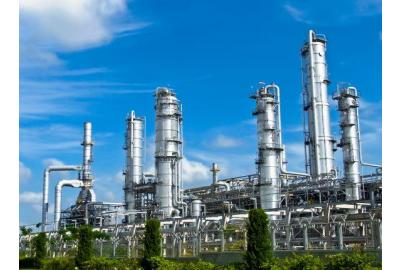If you’ve read our blog on diesel engine runaway, you are familiar with the dangers of operating diesel engines at drilling sites and processing facilities. Unlike gasoline engines that utilize spark plugs, diesel engines rely on clean air drawn in through their intakes to operate. This makes diesel engines susceptible to engine runaway if there is a hydrocarbon vapor release.
So, does that mean that gasoline engines are the safer alternative during oil and gas operations? Not necessarily! Watch our Ask the Expert video for more information on this topic.
Potential Ignition Sources
Refineries, drilling sites, and chemical plants all ban well-known ignitions sources such as matches, lighters, and smoking. However, when work needs to be completed, gasoline engines are frequently used to move vehicles and operate equipment, even though they present several potential ignition sources themselves. These sources include sparks from the ignition system, hot turbochargers, and catalytic converters that can reach temperatures above 1000 degrees Fahrenheit. This OSHA FactSheet is a great resource to help you better understand the ignition hazard of internal combustion engines: https://www.osha.gov/Publications/osha3589.html.
Recognized Danger
Across the globe, international safety experts recognize that gasoline engines are a potential ignition source, and diesel engines are the safer choice if equipped with the proper safety devices and certain guidelines are followed. For example, the IEC and ATEX European rules permit only diesel engines within designated zones in hazardous areas. The American Petroleum Institute (API) and the Canadian government recommend keeping gasoline engines 100 feet and 80 feet from the well, respectively.
How Are Diesel Engines the Safer Alternative?
Although gasoline engines do present several dangers, it’s important to understand that diesel engines have the potential to be ignition sources as well. Diesel engine runaway can occur at all the sites listed above due to the possibility of hydrocarbon spills or leaks. All diesel engines entering hazardous environments should be equipped with an air intake shut off system to prevent engine runaway from occurring.
Contact AMOT today for more information on how your diesel engine can become a safer alternative and what air intake shutoff system is the best solution for your engine make and model.










